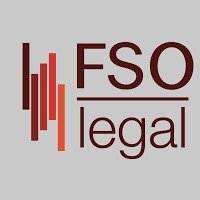Best Nonprofit & Charitable Organizations Lawyers in Evansville
Share your needs with us, get contacted by law firms.
Free. Takes 2 min.
List of the best lawyers in Evansville, United States
About Nonprofit & Charitable Organizations Law in Evansville, United States
Nonprofit and charitable organizations play a vital role in Evansville, United States, providing various services to support the community and addressing issues such as education, healthcare, environment, and more. These organizations are typically structured to reinvest profits into their missions rather than distributing them to shareholders. Navigating the complexities of legal structures, tax obligations, and compliance requirements is essential for these organizations to operate effectively and efficiently.
Why You May Need a Lawyer
There are several common scenarios where legal assistance might be necessary for those involved with nonprofit and charitable organizations. These can include issues such as forming a new nonprofit organization, applying for tax-exempt status, ensuring compliance with federal and state regulations, addressing governance and board-related issues, handling fundraising and grant agreements, and managing employment and volunteer issues. Legal counsel can provide guidance on these matters to ensure legal compliance and operational success.
Local Laws Overview
In Evansville, like the rest of Indiana, nonprofit organizations must adhere to both state-specific regulations and federal laws. Key areas of focus include the Indiana Nonprofit Corporations Act, which governs the formation, operation, and dissolution of nonprofit entities; IRS requirements for maintaining 501(c)(3) status; state-specific fund-raising regulations; and local taxation rules. Compliance with local regulations such as zoning for operational sites and adhering to municipal codes are also essential.
Frequently Asked Questions
What is the process for starting a nonprofit in Evansville, Indiana?
The process generally involves selecting a unique name, appointing a board of directors, preparing and filing articles of incorporation with the Indiana Secretary of State, creating bylaws, obtaining an Employer Identification Number (EIN), and applying for IRS tax-exempt status.
How can a nonprofit maintain its tax-exempt status?
Nonprofits must file an annual return (Form 990) with the IRS, ensure that their activities are aligned with their stated mission, maintain proper record-keeping, and adhere to restrictions on political activities and lobbying.
Are there any restrictions on fundraising activities in Evansville?
Yes, nonprofits must adhere to Indiana's charitable solicitation registration requirements when conducting fundraising activities. This includes registering with the Indiana Attorney General's office.
What are some common legal issues that nonprofit boards face?
Common issues may include conflicts of interest, failure to comply with bylaws, lack of understanding of fiduciary duties, and inadequate board governance and training.
Can nonprofits in Evansville engage in political activities?
Nonprofits classified under 501(c)(3) are prohibited from engaging in political campaigning and are limited in their ability to conduct lobbying activities.
How should nonprofits handle potential conflicts of interest?
Nonprofits should establish a conflict-of-interest policy, educate board members, require disclosure of potential conflicts, and have procedures in place to deal with conflicts appropriately.
Does an organization need bylaws, and what should they include?
Yes, bylaws are essential as they govern the internal operations of the nonprofit. They should include guidelines on board governance, membership, meetings, and procedures for amendments.
What legal documents are necessary for a nonprofit?
Essential documents include articles of incorporation, bylaws, conflict-of-interest policies, board meeting minutes, annual filings, and financial records.
How can a nonprofit protect its intellectual property?
Nonprofits can protect their intellectual property by registering trademarks, copyrights, and patents for their unique brand elements and content.
What are the reporting requirements for nonprofits in Indiana?
Besides the federal IRS Form 990, nonprofits in Indiana may need to file state-specific reports such as charitable organization annual reports to the Attorney General’s office.
Additional Resources
For further assistance, organizations can consult the following resources:
1. Indiana Secretary of State - Business Services Division
2. Internal Revenue Service (IRS) - Charitable Organizations
3. Indiana Attorney General's Office - Charitable Solicitation
4. Evansville Nonprofit Resource Network
5. National Council of Nonprofits
Next Steps
If you require legal assistance regarding a nonprofit or charitable organization in Evansville, consider consulting with an attorney who specializes in nonprofit law. It's important to work with someone who understands the complexities of local, state, and federal regulations. You might start by researching local law firms that specialize in nonprofit law or reaching out to state bar associations for referrals. Additionally, ensure that the legal professional you choose is familiar with the specific challenges and opportunities in Evansville and the broader Indiana region.
Lawzana helps you find the best lawyers and law firms in Evansville through a curated and pre-screened list of qualified legal professionals. Our platform offers rankings and detailed profiles of attorneys and law firms, allowing you to compare based on practice areas, including Nonprofit & Charitable Organizations, experience, and client feedback.
Each profile includes a description of the firm's areas of practice, client reviews, team members and partners, year of establishment, spoken languages, office locations, contact information, social media presence, and any published articles or resources. Most firms on our platform speak English and are experienced in both local and international legal matters.
Get a quote from top-rated law firms in Evansville, United States — quickly, securely, and without unnecessary hassle.
Disclaimer:
The information provided on this page is for general informational purposes only and does not constitute legal advice. While we strive to ensure the accuracy and relevance of the content, legal information may change over time, and interpretations of the law can vary. You should always consult with a qualified legal professional for advice specific to your situation.
We disclaim all liability for actions taken or not taken based on the content of this page. If you believe any information is incorrect or outdated, please contact us, and we will review and update it where appropriate.









